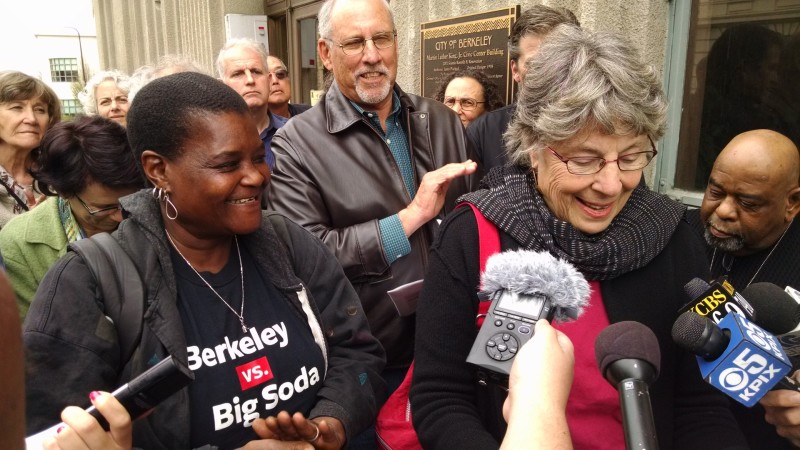The Berkeley City Council has already approved advance funding of $500,000, and wants half of that to go to the school district's nutrition education program. Tuesday night is the first meeting of an expert panel -- the Sugar-Sweetened Beverage Product Panel of Experts -- that will advise the City Council on which specific health programs to fund or establish.
Panel member Joy Moore, a cooking and gardening instructor at Berkeley Technical Academy, said the rest of the allocated money will be directed to community-based groups and programs, with an emphasis on programs that serve low-income children and people of color.
“The place we can make the most difference is in the schools," Moore said. “Education is going to be important to everyone because we need all people to implement, to buy into, to understand the dangers that overconsumption of sweetened beverages will do.”
The nine-member panel plans to consult with the community and will make recommendations to the City Council by Oct. 1. Local organizations will be able to apply for community-based funds.
“We are tired of burying our family members,” said Xavier Morales, executive director of the Latino Coalition for a Healthy California, and another member of the expert panel. “We have a diabetes crisis in Berkeley."
He said that having dedicated revenue to fund programs to help people with diabetes or families at high risk "will really help us in Berkeley."
California Beverage Association spokesman Roger Salazar, who was standing only a few feet from the jubilant press conference, called the tax measure “very confusing.”
“We’ve heard from a lot of grocers, retailers, restaurateurs who want to comply with the measure but can't get real clarity of what it applies to and who it applies to,” Salazar said.
During the month of March, 36 entities, mostly larger distributors, paid the tax. Maio said the city is doing person-to-person outreach to inform smaller merchants about how the tax might affect them. Measure D stipulated that the tax take effect on Jan. 1 -- but to give time to businesses to adjust, the council delayed the start date until March 1.
“We want to do a truly good job of implementing this, because we know we are being watched very carefully," Maio said, "and that particularly the (soda) industry is watching very carefully. … We want it to work well.”
Maio also praised Dairy Queen’s recent decision to remove soda from its children’s menus — following the lead of Burger King, McDonald's, Wendy’s, Chipotle and Panera.
“We think we are at the beginning of a continuum that has to move forward for the health of our kids,” she said.
